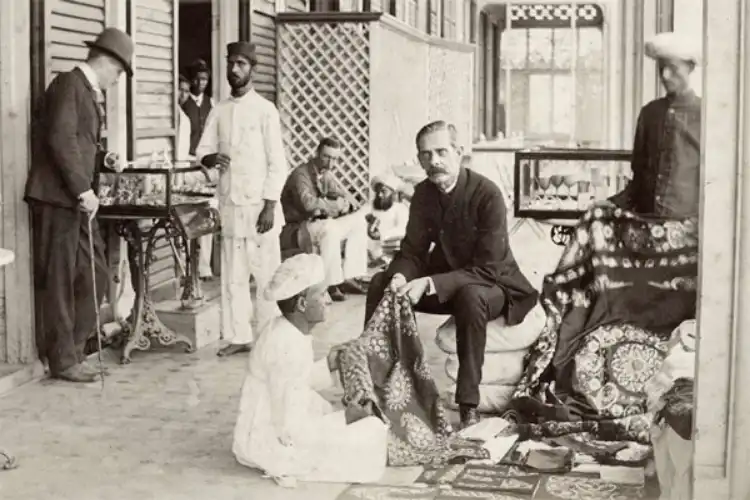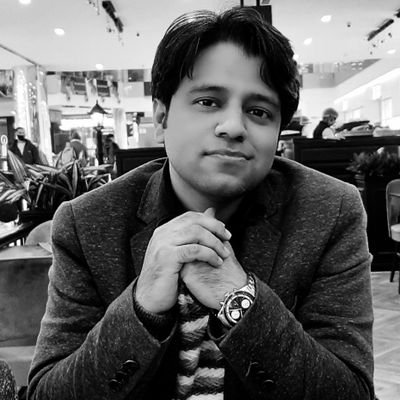
 Saquib Salim
Saquib Salim
People often ask, why do we want complete decolonization of thought and education before National reconstruction? The answer has been given by Shaukat Ali, President of AIMIM (UP chapter). When he said, “we ruled on India for 832 years, and you (Hindus) were forced to say ji hazur (Yes Sir) by keeping your hands behind yours back in front of our Badshahs”, Shaukat was reiterating the poison spread by the British colonists that also led to the division of India into three nations.
A Slice Of History
As an Indian Muslim and a historian, it is my responsibility to point out the criminality hidden in this poisonous remark. It must be understood that to divide and rule the Indians, the British invented, or catalysed, the divisions among Indians in the name of religion, caste, language, or region.
The education system sowed the seeds of divisions in young Indian minds. To portray themselves as saviours of the majority, they started teaching Indian history classified into three periods - the Hindu period (ancient), the Muslim period (medieval), and the Modern period. The intent is very clear from the fact that the British rule was never called Christian rule, based on the religion they professed, while previous eras were identified based on religions. Even those classifications are completely devoid of facts.
It is a tragedy that Indians accepted this history and kept reproducing it even after independence. Akhtar Hameed Khan, a former ICS officer, and economist wrote, “Since childhood, I have been fed with my superior tribal identity. I was told that I should be proud of the destruction caused by Turk soldiers of Mahmud’s Army during their victory marches. But, at the same time, I should be agitated at the destruction of the Balkans. I should laugh at the destruction of Vijay Nagar Empire by Bahmani but weep at the defeat of Srirangapattanam by the English Army.”
I, with all sense of responsibility counter this false history. Shaukat has arrived at the figure of 832 years by counting from Mahmud of Ghazni’s raid till the capture of Bahadur Shah Zafar in 1857. I wish he had followed Bahadur Shah’s vision of a united secular India. First of all, we must teach Shaukat and his ilk that Muslims never reigned over India for 832 years. Mahmud, with whom his timeline starts, never ruled but raided Indian territories. The first Muslim ruler to establish rule over Delhi was Mohammad Ghori, almost 150 years after Mahmud’s last raid into India. Here it must be kept in mind that ruling Delhi did not mean control over India like in present times.
There were different sovereigns in Gujarat, Tamil Nadu, Deccan, Karnataka, Bengal, Rajasthan, and Punjab. From 1192 till 1526, when Babur defeated Ibrahim Lodhi, several dynasties ruled over Delhi by warring with each other. A large part of India was still under the rule of Hindu sovereigns and they had political alliances with Muslim rulers according to the need.
The rulers were Muslims but it doesn’t mean that all Muslims were rulers. Just because PM Narendra Modi is a Hindu doesn’t mean that all Hindus are rulers and no Muslim can belong to the ruling elite. We find Hindus doing menial jobs and several Muslims holding powerful positions like governors or ministers. Padma Bhushan K. S Narang, an eminent historian, wrote about the Sultanate period, “The Muslims did not constitute one single class. They were divided into three subdivisions: the upper class, the lower-middle class, and the slaves.”
Subhas Chandra Bose echoed similar sentiments when he said, “There is much more in common between a Hindu peasant and a Muslim peasant than between a Muslim peasant and a Muslim zamindar”.
The more widespread area came under Muslim rulers after Akbar expanded the Mughal empire. The fact is that the Mughal empire was not by any means a Muslim empire but a coalition of Hindus and Muslims. Most of the army generals were Hindus while enemies suppressed by Mughal armies were headed by Muslims. Dr. Rajendra Prasad noted, “Much of the time and energy of the Mughal Emperors from Akbar right down to Aurangzeb was taken up in suppressing the revolts of Muslim Governors of Provinces or in conquering independent Muslim kingdoms.
It is well known how Aurangzeb spent many years in the South conquering the Kingdoms of Bijapur and Golkonda and that he died there. Many of these expeditions and wars were led on behalf of the Emperors at Delhi by Hindu generals like Man Singh and Bhagwandas in the time of Akbar and by Jaswant Singh and Jay Singh in the time of Aurangzeb, conquering and suppressing not only Muslim rulers and governors but also Hindus who were ruling at the time in parts of the country.”
He further wrote, “If in his wars Aurangzeb employed Hindu generals, his Hindu rival Sivaji also had in his employ quite several Muslim military officers. Some of them held important positions, like the Generals Siddi Hullal and Nur Khan. In Sivaji’s Navy, there were at least three Muslim Admirals — Siddi Sambal, Siddi Misri, and Daulat Khan.”
Ram Gopal, a historian often identified with the Hindu right-wing, also refutes the claim that India came under Islamic rule with Ghori. He writes, “another wrong notion held is that with the establishment of Mohammad Ghori’s rule, India became an Islamic state and that only the kingdom changed hands from the one Muslim dynasty to the other”. The so-called Muslim rule did not extend to the whole of India.
The Vijayanagar empire existed at the same time. Ram Gopal notes, “in 1558, Ali Adil Shah, the Sultan of Bijapur, had with the active support of Rama Raya of Vijayanagar attacked and given a crushing defeat to Husain Nizamshah of Ahmednagar.” So much for a fantasy of Hindu Muslim rulers acting according to religious bigotry and not politics.
It must also be noted that after the death of Aurangzeb in 1707, Sikhs, Marathas, Jats, and Pathans emerged as sovereigns. From 1707 to 1857, India was not a Mughal kingdom. Mughal rule was practically over by 1765. But, the spirit of syncretism remained. Rajendra Prasad pointed out, “Even today in India. States Hindus and Musalmans are appointed to the highest posts irrespective of their religion. It is enough to cite the instances of Maharaja Sir Kishen Prasad of Hyderabad and Mirza Sir Mohammad Ismail of Mysore and now of Jaipur.”
ALSO READ: India hasn’t slipped down in Global Hunger Index
